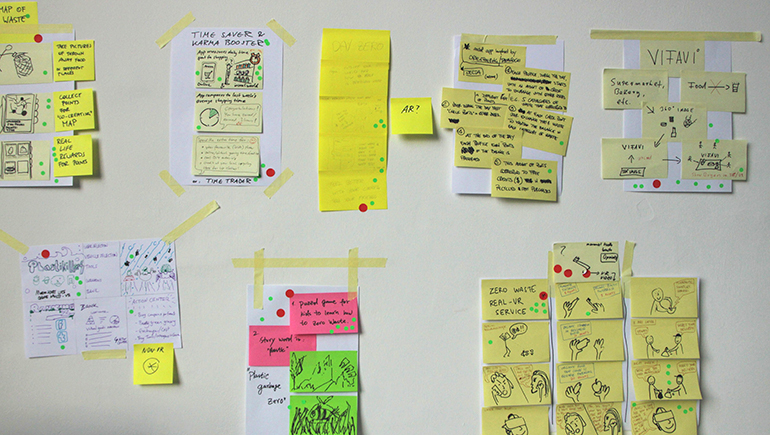A few weeks ago the University of the Arts Berlin hosted a Hackathon with a special focus: Waste. Luise Kröning, the organiser of the event, wanted to motivate the participants to design the future by joining the zero waste movement and using Virtual Reality. The outcomes of this innovative mix, can be found out here.
One of the most pressing problems of our society is climate change. Consumerism and the resulting throw-away society is one of the leading causes for climate change. Did you ever wonder what happens to the things you throw away? How can we, as a society, reduce our “garbage footprint“?
The project “Hackathon: VR for Zero Waste” has been tackling this issue by showing an approach to waste reduction in the digital age. About twelve people came together in a two days workshop at the University of the Arts Berlin to come up with solutions to the question: How might VR help to support the zero waste movement?
At this problem-focused, highly intensive, effective and sprint-like computer programming event, the enthusiastic participants with different professional backgrounds have built a solidifying concept and a first prototype.
The Hackathon has united people by bridging language and cultural gaps between especially tech-experienced programmers, game developers and storytellers, designers and film makers. In times of globalization and connectivity, social and environmental challenges become more complex. Thus, the teams working on those global problems have to be as diverse and multi-faceted as the problem itself. The failure of governments and corporations to solve certain problems has driven technology enthusiasts like those at the VR Hackathon to create human-centered solutions and develop digital innovations. The current VR applications on the market are revolving around gaming, entertainment and 360° documentaries about humanitarian issues. Thus, the VR project on waste reduction has been one of the firsts of its kind in Germany. It is an experimental format to raise environmental awareness.
On the first day, the attendees got to know each other by engaging in a breakfast from saved, organic food by The Real Junkfood Project Berlin. They exchanged information about their different working styles, got input from a zero waste expert and set up the hackathon goal: How might we make reduced consumerism rewarding (for children)? In a short design thinking session, different user personas and application sketches were created. At the end of the first day, the team has finished the storyboard for the VR application.
On the second day, the prototype has been continuously developed by undergoing several iterations. The results have been presented to the public at the end of the event and are open for discussion – for proving (or disproving) the concept: The final idea is to promote conscious consumerism through an educational game in the context of seminars at schools or youth centres.
Hack local, think global!
– Luise
Luise Kröning is a global citizen and media scholar, currently absolving her Master’s degree of “Communication in Social and Economic Contexts” at the University of the Arts Berlin.

